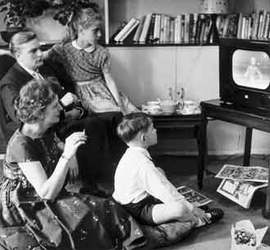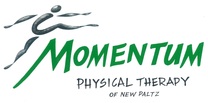|
In the second installment of my sitting series, I will touch upon metabolic issues but if you missed Part I, you can catch up and read that here.  It is not rocket science to understand that your metabolism is directly related to your energy expenditure. The more active you are, the higher your metabolism is to meet your energy needs. Therefore the opposite is also true: the less active you are, the lower your metabolism is to meet your energy needs. In our modern society, we have traded active lives out of necessity for sedentary lives by way of convenience. Many of these conveniences involve sitting. You sit in your car to do your errands, you take in information and entertainment when you sit to watch television and so many of us sit at a desk with a computer now to work for 8-10 hours each day. That adds up to a lot of sitting every day of our lives which makes for a relatively sedentary lifestyle. To illustrate this, I will briefly highlight a study performed in 2011 by Swartz et al (1) that looked at energy expenditure in four 30 minute situations. The first involved sitting for 30 minutes without a break as the baseline measurement. The second, third and fourth bouts of sitting were interrupted by periods of walking for 1, 2 and 5 minutes, respectively. It should come as no surprise that each person expended more energy when they interrupted their sitting time with a period of walking and as expected walking for 5 minutes expended the most. To put this into perspective you would burn an extra 24 calories on average over the course of an 8 hour work day if you walked for 1 minute every hour. Do it every half hour and that number would double. For a week that would be 120 calories (or 240). 660 calories would be burned per week if you walked for 5 minutes every hour but this may not be as realistic as 1 or 2 minute walking breaks. Extrapolate these numbers over a year and you get the picture. The obvious implication of this small study is for weight maintenance, and for many people that means weight loss. Granted this particular regimen may not be possible on the hour, every hour, every day for every person but it does shine light on incredibly simple lifestyle and work style changes that can add up to very beneficial results. Now it should be noted that the exact numbers will be different for everyone but the idea remains the same. Simple changes in position and activity will lead to a positive change in your metabolism. Even alternating periods of sitting and standing at your desk will boost your metabolism rather than sitting the whole day. The ultimate would be those fancy treadmill desks but most offices aren't really equipped for that just yet. Beyond the direct impact sitting has on metabolic rate and calories burned (or not burned), prolonged periods of sitting have been linked to a long list of chronic diseases and conditions associated with metabolic changes detrimental to a person's health. These include but are not limited to Type II Diabetes, Cardiovascular Disease, Metabolic Syndrome, Atherosclerosis, Obesity and Breast and Colon Cancers. At best, you may be inconvenienced by not fitting into a pair of jeans or having to go to your physician more often for tests to keep track of any signs or symptoms. At worst, your life becomes more challenging as you get sick more often, suffer major health setbacks like amputations and risk premature death from largely preventative health issues. On that note, start a good habit by getting up wherever you're sitting to read this and walk around for a minute or two. Next time I will discuss some of the long term health risks in more detail. References: 1. Ann M Swartz, Leah Squires, Scott J Strath. Energy expenditure of interruptions to sedentary behavior. Int J Behav Nutr Phys Act. 2011; 8: 69. If you found this post to be helpful, please share!
0 Comments
Leave a Reply. |
Dr. Greg Cecere
Your personal physical therapist, movement educator and knowledge dispenser. Newsletter Sign Up
Enter your name and email to get Momentum PT's Movement Manual delivered straight to your inbox! It's your free monthly newsletter and guide to moving better, feeling better and living better! Archives
April 2017
Categories
All
Disclaimer:
The contents of this blog is meant for educational purposes only. Momentum Physical Therapy of New Paltz and Dr. Greg Cecere are not responsible for any harm or injury that may occur due to any information on this blog as it is by no means a substitute for a thorough evaluation by a medical professional. |
|
Momentum Physical Therapy of New Paltz, PLLC. Copyright © 2013-2024. All Rights Reserved.
Disclaimer: The contents of this site is meant for educational purposes only and utilization of any of the material is a personal choice. Momentum Physical Therapy of New Paltz and Dr. Greg Cecere are not responsible for any harm or injury that may occur due to those choices. This site is by no means a substitute for a thorough evaluation and guidance by a licensed medical professional.
|
 RSS Feed
RSS Feed
